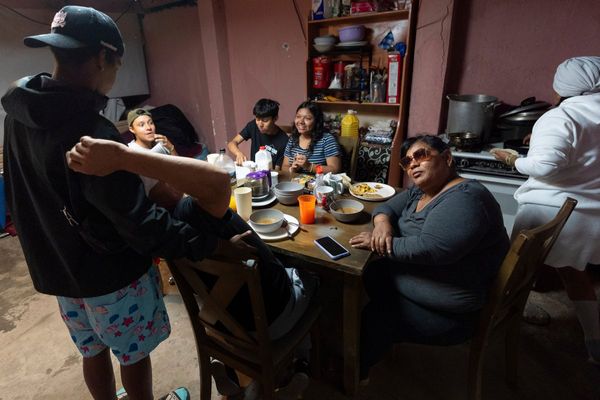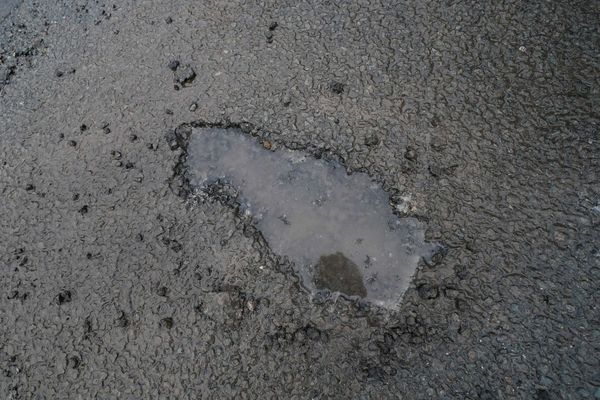
Nacho Hernandez Moreno, an attorney in Alicante, Spain, has spent the past two years pushing for Spain to end its detention of migrants and asylum-seekers. When the coronavirus pandemic hit, he feared that overcrowding and poor sanitary conditions would fuel the spread of COVID-19 inside facilities. That has been the case in detention centers in the United States, France, Malaysia, the United Kingdom, and elsewhere, which have emerged as hot spots for COVID-19.
By March 14, Spain had declared a state of emergency and closed its borders, making it unlawful to keep people in detention; according to national law, migrants can be held for a maximum of 60 days while awaiting deportation. But with deportations frozen, detention became illegal immediately. On March 18, judges therefore began ordering the country to empty its detention centers.
“They’re still empty,” Moreno said in a phone interview in June, calling the move “unprecedented.” Undocumented migrants were connected with nonprofit organizations such as Fundación Cepaim, where Moreno works, and residents were released into the community to return to their families. “It ended up working as a de facto alternative to detention,” he explained. “It wasn’t designed that way, but it worked.”
Although the particularities of Spanish law—its 60-day maximum is lower than many other EU countries; according to EU law, detention cannot exceed 18 months—played a part in the sweeping halt, it’s hardly the only country where immigration detention has decreased since the pandemic began: Courts in Portugal, France, the U.K., Japan, Indonesia, and the Netherlands have ordered facilities to release immigrants. (Although in some instances judges have ordered facilities in the United States to release detainees, it has been far rarer than in other countries, even as the virus ravages U.S. centers, infecting and killing detainees.)
These pandemic-driven releases could now prompt a reckoning for the broader system of immigration detention, advocates say, which has become central to immigration policies in much of the world—whether in wealthy European countries or major migration transit points such as Morocco and Malaysia.
With no end in sight for the spread of the coronavirus, they hope that temporary shifts away from detention could influence future policy and create space for more humane—and less costly—alternatives, such as GPS monitoring, supervised release, or parole. But others fear that governments could seize on the same conditions driving court-ordered releases—border closures, concern over infection, and a drop in asylum—to restrict immigration entirely.
The pandemic, then, is prompting two parallel trends when it comes to global migration: on the one hand, mounting legal challenges to detention and, on the other, a significant reduction in immigration and asylum.
“COVID-19 means there’s no way to keep people in detention, due to humanitarian concerns, and we could build on this momentum as the basis for future advocacy,” Moreno said, noting that in Spain, numerous judges have said they would not consider further detentions until a vaccine becomes widely available.
“It’s clear as day that it’s a system that’s been flawed and ill-conceived from the get-go,” said Donald Kerwin, the executive director of the Center for Migration Studies, a New York-based think tank. “It’s used as a means to an end, to remove people. But it ought to be the last resort, because it’s so punitive, so expensive, and a harsh way to ensure the integrity of the enforcement system.”
The pandemic has drawn attention to the unsanitary conditions and overcrowding that are the norm in immigration facilities around the world. Even in normal times, detention centers have seen outbreaks of diseases that have otherwise become rare.
Last September, a mumps outbreak swept U.S. facilities; nearly a decade ago, research from holding facilities on the Greek-Turkish border pointed to high rates of respiratory disease and infection. In 2018, the World Health Organization argued that crowded refugee facilities increased the prevalence of antibiotic-resistant diseases, posing a serious threat to public health.
“The pandemic puts the entire strategy of systematic use of detention as a form of migration control in question,” Magdalena Majkowska-Tomkin, the division director for migration at Open Society Europe, said by email, adding that “detention undermines the public health objective.” Spain, she wrote in an op-ed, showed that “within a matter of weeks, almost all of [a] nation’s detention system can be closed due to health risks, human rights concerns and legal uncertainty.”
Alternatives to detention include GPS or mobile-phone monitoring and community support programs, which research shows have been successful in encouraging migrants to comply with immigration proceedings and court appearances. In some cases, the pandemic has even led countries to regularize undocumented migrants altogether, avoiding detention and deportation.
Even Italy, which has in recent years become notorious for its anti-immigration policies—though the country’s stance has softened somewhat since the far-right League party lost its place in the governing coalition late last year—regularized over 500,000 agriculture and care workers in May, recognizing their central role in restoring the country’s lagging economy.
Portugal expedited residency permits to migrants awaiting regularization and extended full citizenship rights to migrants and asylum-seekers until June 30. “There are clearly alternative ways to manage migration, which benefit everyone, without having to imprison people at great financial and human cost,” Majkowska-Tomkin said.
Court-ordered releases, experts say, will likely see continued success; as long as the virus is spreading—which could be for years—judges will be more inclined to force detention centers to release detainees or at least reduce the number of people being held. And while advocates admit that detention in some form will continue to exist, it will be difficult to return to the overcrowded facilities that have become the norm.
“Detention levels have gone down in most places, and it’s going to be a challenge for those systems to pick back up any time in the near future,” said Michael Flynn, the executive director of the Geneva-based Global Detention Project.
“The pandemic creates a structural barrier, which gives the space to say, this isn’t something we have to be doing,” he said. Still, “if and when things do return to some sort of normal, it’s challenging to think that the kinds of pressures that caused the system to emerge are simply going to go away.”
Even Spain, which has been praised for its significant releases, continues to detain hundreds of migrants in packed transit centers on its island enclaves of Ceuta and Melilla. “There’s all this great press about Spain emptying its internment centers on the mainland, but in the enclaves the opposite is happening,” Flynn said, calling the situation a “potential humanitarian nightmare.”
France, which began closing detention centers or drastically reducing detainee populations in March, started reopening some in late June as part of a broader easing of restrictions, generating outcry from immigrant advocacy groups.
Still, Flynn said, countries will be forced to decide what to do with people who were released during the pandemic. “Governments will have to ask, can they be redetained, and if so, will they want to do that, with the costs it would entail?” In the past, however, exorbitant costs have hardly dissuaded governments that pursue expensive detention operations largely to pander to anti-immigration voters.
With that in mind, a move away from detention could simply be part and parcel of a reduction in migration entirely, against a backdrop of further curbs on migratory and asylum systems. In other words, if countries simply refuse to accept new migrants or asylum-seekers at their borders, there will ultimately be fewer people to detain.
“If the EU moves away from detention, it will still be focused on control, control, control,” said Moreno, the Spanish attorney. “We might be avoiding detention, but that doesn’t mean providing for migrants—it could mean a shift toward deportation.” That could entail immediate deportation, a doubling down of offshore facilities like those on Ceuta and Melilla, or a hardened border approach that would curtail the number of migrants allowed onto European shores at all.
That attitude seems to underscore a new EU migration pact released in April, according to an analysis by the European Policy Centre, with a focus on hardened external borders and a stronger push to return migrants to their home countries.
Hard-line policies are already playing out on the ground, even as advocates make headway in forcing the release of detainees. In May, Hungary released 300 asylum-seekers from its so-called migrant transit zones on its borders with Serbia, which had gained notoriety for their prisonlike conditions. At the same time, it enacted legal changes to make asylum all but impossible moving forward, notably by requiring asylum-seekers to submit applications at consulates in neighboring countries.
Nationalist governments, Moreno said, “will always oppose our type of advocacy effort.” If the pandemic does force a rethink of policy, “it will lean toward preventing migrants from coming to Europe, not finding ways to provide for them.”
It’s not limited to countries like Hungary that are already notorious for their hostility to migrants. France—which has progressively tightened its immigration policies since Emmanuel Macron took office in 2017—began chartering planes to deport migrants this month, the advocacy group La Cimade reported. Thousands of migrants and asylum-seekers are sleeping in encampments across the country, even as coronavirus infection rates rise; in early July, the European Court of Human Rights ruled that authorities had “failed in their duties” to protect asylum-seekers—the fourth such condemnation in a one-month period.
Public health concerns will likely embolden leaders already searching for any pretext to curb resettlement and asylum. Xenophobic governments in Poland, Hungary, and the United States have seized on the pandemic; nationalist parties in France and Italy have lauded border closures, tapping into tropes that foreigners will bring disease.
“Once normalcy returns, that politics of fear will come to the fore,” Flynn said. “It’s such low-hanging fruit on the path to power, and we’re not going to see a change in mentality.”
In the United States, for example, the Trump administration has expedited deportations and stopped processing asylum claims—a policy that advocacy organizations call unlawful but have failed to successfully challenge in court. Over the past month, Malta has repeatedly used private ships to push migrants back to Libya, citing public health concerns; Greece suspended its asylum system entirely. And while France briefly extended residence permits, it has also made it more difficult to apply for asylum.
“What we’re seeing in many of these instances is a lot of evidence that governments who have openly expressed their intention to deflect or prevent asylum-seekers from lodging claims now have found the pretext to do that,” said Bill Frelick, the refugee and migration rights division director at Human Rights Watch.
Current releases might benefit migrants and asylum-seekers who were already in detention, but for everyone else there may be little chance of ever reaching European shores, lodging an asylum claim, and seeing a judge. “They’re basically throwing all that out the window,” Frelick said. “They’re just expelling people summarily and saying, ‘Tough luck.’”







